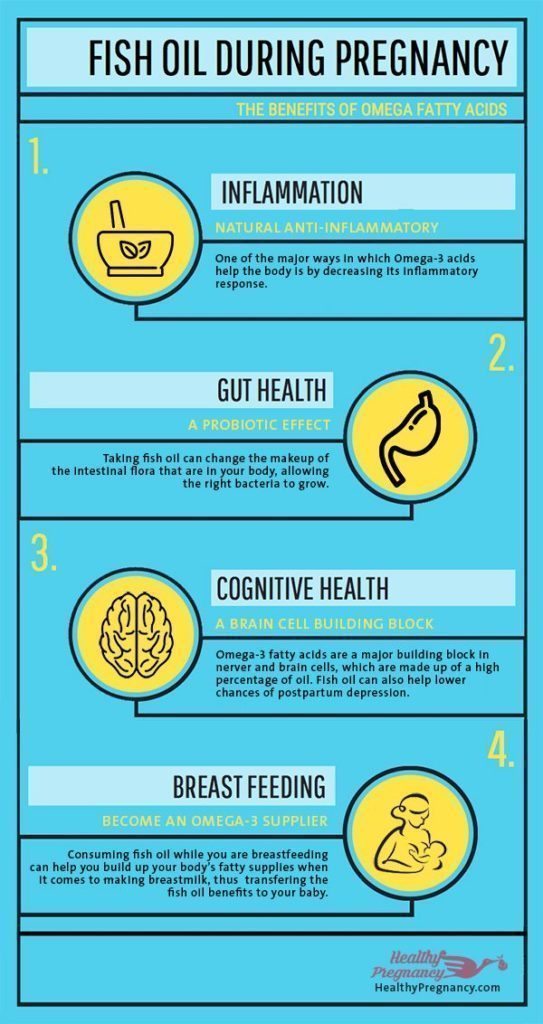Fish Oil During Pregnancy

Contents:
Is it Safe to Take Fish Oil During Pregnancy?
The use of fish oil during pregnancy has its positive and negative sides. The question of security of its use is often linked to levels of mercury and retinol in fish. These substances can come from the fish into fish oil additives, and, when a pregnant woman consume it, affect the health of her fetus. In some cases, additives with fish oil contain very small amounts of mercury or retinol, or does not contain these substances at all, but pregnant women should carefully read the information on the packaging of additives or contact the manufacturer to determine the total mercury content in a product.
Fish oil is a rich source of Omega-3 fatty acids. Fatty acids are usually consumed with food, but the researchers found that many people have higher levels of Omega-6 fatty acids than the level of Omega-3 fatty acids in their body. And the balance of these acids is required to make an optimum enjoyment of all their useful properties. And specialists tend to support the intake of fish oil during pregnancy for the purpose of achieving a more balanced diet.
According to the National institutes of health (NIH), the "Western" diet includes Omega-6 and Omega-3 fatty acids in the ratio of 15:1. Their healthy properties, such as the ability to reduce mortality, will be 70 % intensified, if that ratio catches up the recommended levels. Thus, to reduce the risk of mortality, it is enough to increase the consumption of Omega-3 fatty acids to catch up the ratio of 4:1.
The opportunity of pregnant women to get benefit from the useful properties of Omega-3 fatty acids can be linked with the need to use fish oil derived from the flesh of the fish, not from fish liver.
The fish oil derived from the liver of fish contains retinol, which is a form of the vitamin A. The intake of additives with the vitamin A should be avoided during pregnancy. Prenatal vitamins usually contain 8000 IU of this vitamin, and it is usually enough. The intake of prenatal vitamins simultaneously with fish oil derived from the liver of fish may increase the risk of a retinoid embryopathy.
The retinoid embryopathy is a syndrome that can cause deformations of the ears, face and heart of the fetus. This condition can also affect the thyroid function. The toxicity of the vitamin A during pregnancy is usually not associated with beta-carotene, but only with retinol, therefore, you should care to avoid penetration of the latter into the body. Mercury levels in additives with fish oil are generally lower than in fresh fish.
One reason for this is the fact that fish oil is treated to reduce the concentration of this substance before packaging in capsules. Women, who wish to take fish oil during pregnancy, should carefully study the information on the packaging of additives. The fish containing very small amounts of mercury, such as sardines, tilapia and anchovies are usually the source of low in mercury fish oil as well.
Woman's body tends to absorb fish oil during pregnancy better if the fresh fish is its source. However, the Pregnancy Association recommends pregnant women to eat not more than 340 grams of fish per week. And some species of fish are not at all recommended for consumption during pregnancy by the Association's representatives due to the high mercury content. Such species include tilefish, swordfish and shark. Other species of fish, the consumption of which is not recommended during pregnancy, include red perch, marlin and orange roughy.